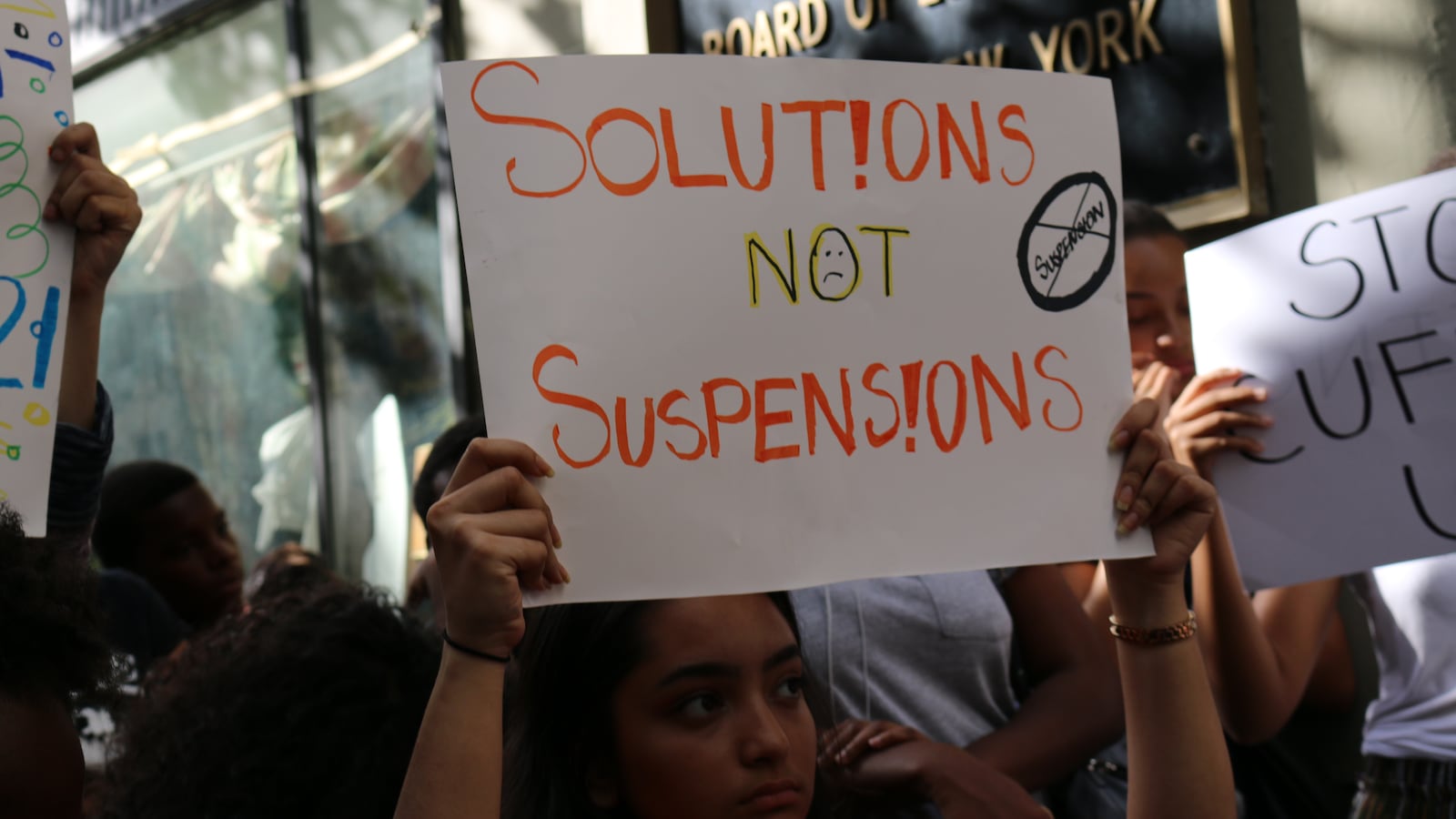Student suspensions in New York City schools continued to fall last year year, but racial disparities remain, according to data released Monday.
The total number of suspensions dropped to 35,234 in the 2016-2017 school year, a 6.4 percent decrease from 2015-2016, according to figures released Monday by the education department. Arrests in schools were down 8 percent and summonses declined by 11 percent during the same time frame, according to the department.
While most student groups received fewer suspensions last year, black students and those with disabilities continued to be suspended at disproportionately high rates.
Over the past five years, suspensions have tumbled by 34 percent — a downward shift that started under the previous administration. But Mayor Bill de Blasio has made discipline reform a centerpiece of his education agenda, with a focus on pushing schools to adopt less punitive responses to misbehavior. As part of that shift, his administration has made it harder for schools to issue suspensions.
“As a parent and your mayor, there is nothing more important than the safety and wellbeing of all New York City kids,” Mayor Bill de Blasio said in a press release Monday that announced the latest suspension numbers, along with a slate of new initiatives meant to reduce school bullying. He added that the programs would “keep crime in schools [at] its historic low.”
InfogramWhile de Blasio’s discipline-policy changes appear to be continuing to drive down suspension numbers, some educators and critics of the mayor argue that discipline has actually deteriorated in some schools as staffers struggle to respond to infractions without resorting to suspensions.
The principal’s union has balked at the city’s requirement that school leaders seek approval for suspensions in certain situations, including suspensions of young students. Union President Mark Cannizzaro has said that school leaders should have the final say on discipline decisions since they understand the situation best.
“There are a heck of a lot of things that we need to do to make sure that we respond to student behavior more appropriately, but taking the decision away from the principal is a bad thing,” he told Chalkbeat recently.
At the same time, advocates for discipline reform say the city hasn’t gone far enough to ensure schools don’t funnel students into the criminal justice system, and insist that teachers need more training on alternatives to suspensions. They point in particular to the far higher discipline rates for students of color and those with disabilities than of their peers.
Though 27 percent of city students are black, they accounted for about 47 percent of all suspensions last school year. That’s slightly lower than the previous year, when almost half of all suspensions were issued to black students.
“If this is a city that, in 2017, is committed to creating fair and equitable processes and policies throughout the city — particularly for young people of color — then there’s still a great deal of work that has to be done,” said Kesi Foster, an organizer with Urban Youth Collaborative, a student-led social justice organization.
Students with disabilities make up 19 percent of the city’s enrollment, but represented about 39 percent of all suspensions last year. According to the city, that number is down 5.6 percent year-to-year.
Though Foster praised the anti-bullying initiatives announced Monday, along with the overall downward trend in suspensions, he said the city needs to come up with a plan to specifically address the ongoing disparities.
City officials point out that major violent crime in schools is at its lowest level since 1998, when those statistics first started to be collected. The de Blasio administration also touts $47 million in annual spending on mental health supports for students and other efforts to improve school culture.
On Monday, the city announced an additional $8 million in spending on new initiatives to address bullying in the wake of a fatal school stabbing in a Bronx high school. The student accused of the killing was reportedly bullied.
“These programs are part of the DOE’s ongoing work to ensure that schools are equipped with the critical resources they need to effectively manage incidents and address underlying issues head-on,” according to a city statement.
Alex Zimmerman contributed to this report.

